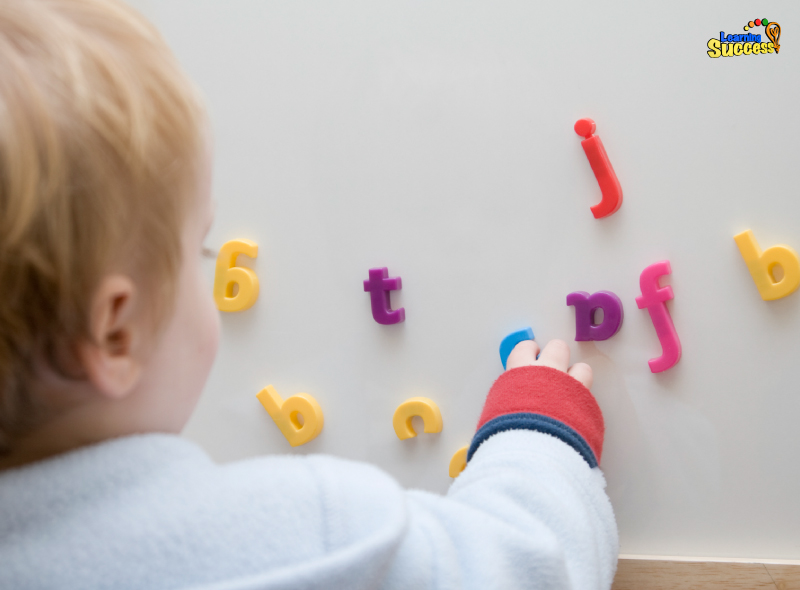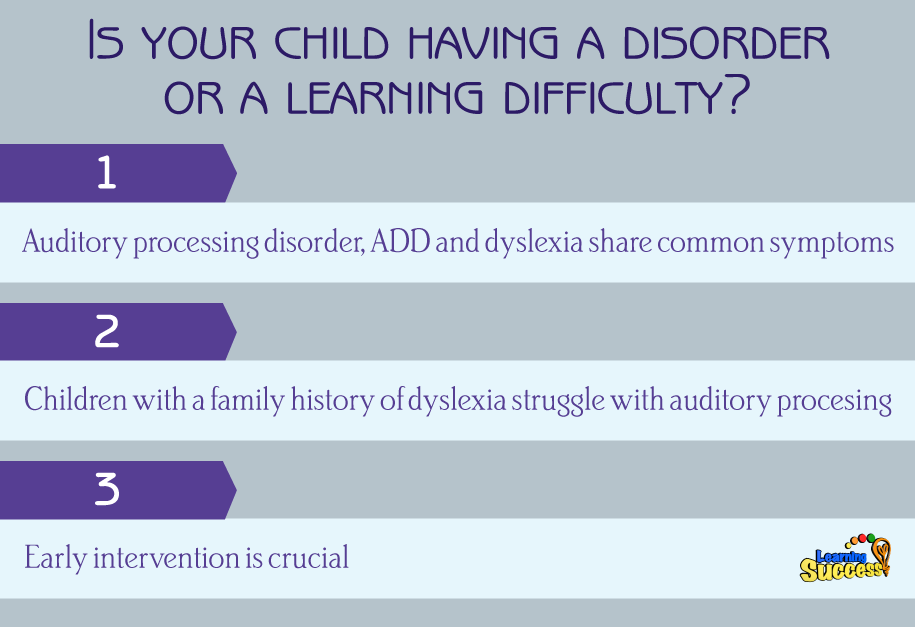
Could your child, who you thought had ADD or Dyslexia, have been misdiagnosed? These both share symptoms with auditory processing disorder, and the overlap has created a big trend of misdiagnosis.
Symptoms of ADD, ADHD and Dyslexia overlap
Despite all the advances made in studying learning difficulties, children are still susceptible to being misdiagnosed. Dr. Martin Burns believes such might be the case for those with auditory processing disorder.
In his webinar, “How Do ADD, Dyslexia, and Auditory Processing Disorder Overlap?”, he says this may come about because ADD and dyslexia share similar symptoms with auditory processing disorder.

When symptoms overlap, a misdiagnosis occurs
According to Burns, ADD, dyslexia, and auditory processing disorder share a fundamental problem: difficulty in understanding and processing speech.
Essentially, in all three of these disorders, the parts of the brain that handle sensory input develop earlier than those responsible for focus and attention. This causes the overlapping symptoms that can easily confuse medical professionals. For example, what looks like a child with ADD simply not paying attention may, in fact, be a child who simply cannot understand what is being said. If they are misdiagnosed, treatment will certainly be ineffective.
Early intervention matters
Burns believes early intervention to improve auditory processing can have a significant positive impact on a child’s learning. Also, children with a family history of dyslexia are known to have more difficulties with auditory processing. To minimize the chances of a misdiagnosis, a multi-pronged approach that takes all these factors into account is crucial. One-off therapies do not address the whole.
Key Takeaways:
It's no surprise there is such an overlap in these diagnoses. Sensory input from any of the three main senses (auditory, visual, kinesthetic) going awry can cause very similar symptoms. And no matter which sensory input is troubled, it's more beneficial to work on all three. Simply because they all work together. An isolated approach can often be ineffective. Whereas, a holistic approach can work miracles.
A diagnosis is not a cure. It can be helpful in some situations. But often what is more helpful is parents working with their children in a structured manner to build up focus, build up the micro-skills of learning, and build self-confidence.
Working on all of these can never hurt and no matter what the diagnosis (or if you even get one) you will already be on track when that diagnosis is determined.
It's amazing what a determined parent can do.
Do You Need help with a Learning Difficulty?
Our simple online analysis will help you get to the core of the problem and find the right solution for you.
Understanding how to help someone with a learning difficulty starts with understanding which micro-skills are affected. When you learn which of the micro-skills is the problem, you will then be on your way to solving it.
You'll also learn how to:
- Build confidence
- Enhance Learning ability
- Eliminate avoidance
- Build grit
You can get this analysis for free by filling out this simple form. This will help you get to the bottom of a learning difficulty and provide you with a solution. If you are ready to put this problem behind you click the button below and fill out the form.










